Nature’s best botanicals: Are herbal remedies really worth the bother?
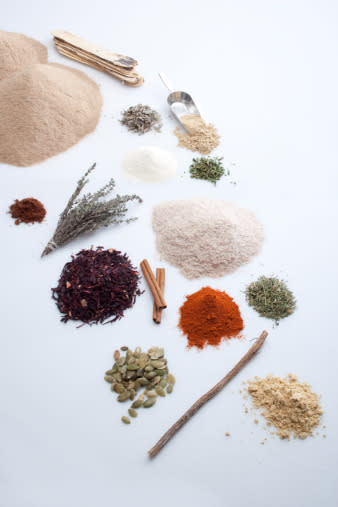
Herbs and plant extracts are common ingredients when it comes to beauty and lifestyle products, but what do they actually do and are they really any good?
You might know that lavender is great for relaxing and tea tree oil is super for spot fighting but there’s plenty more that you should be stocking in your cupboard. We’ve taken a look at some of nature’s best botanicals and the benefits they can have on your body.
First of all – why use herbs and botanicals?
“Used properly, herbs can improve our ability to tolerate stress, increase our immunity, regulate our hormones and make us stronger,” says Sebastian Pole, Pukka Herbs co-founder and herbal director. “In other words, they can increase the quality and length of our lives”.
In a world where modern medicine has us hoping for quick and fast fixes, traditional herbal medicine is often overlooked - despite it’s holistic approach.
“We are complex beings and illness itself isn’t always simple,” explains Sebastian, “Herbal medicine recognises the diversity of our complex physiology and promotes the integrity of the whole being, using natural medicines that are often multidimensional. As such, there is none of the ‘one drug for one disease’ approach that is so familiar in modern orthodox medicine.”
It’s not all about taking tablets and supplements either. As Shona Wilkinson from Superfood UK explains, “Many people these have very compromised digestive systems which means that they run the possibility of not digesting and absorbing nutrients properly. Topical products applied to skin go directly into the bloodstream, bypassing the digestive system and get absorbed quicker. This makes them good for any skin conditions such as eczema and psoriasis.”
It’s important to note that some herbal supplements are still ingested as larger molecules are not always easily absorbed by the skin.
So, which ones should we be stocking up on?
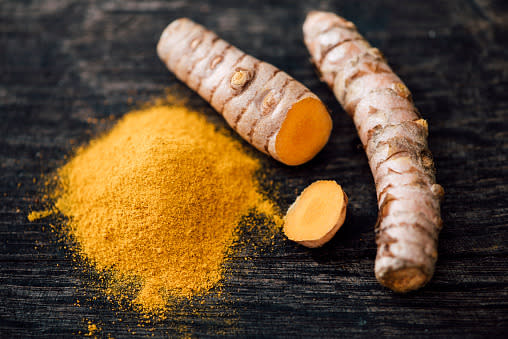
[Photo: Getty]
Turmeric
A yellow spice that is more commonly used for curries and mustards, the health benefits of turmeric are not as well known as its culinary purposes. Turmeric contains curcumin, a powerful antioxidant that fights inflammation and neutralises those damaging free radicals. It’s also believed to boost certain hormones in the brain, boosting memory and fighting degenerative processes.
Uses: Headaches, cold and flu, joint pain, IBS
Try: Pukka Turmeric Gold Tea £2.49
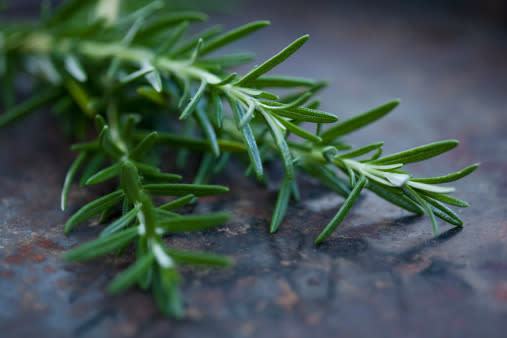
[Photo: Getty]
Rosemary
You might associate rosemary with your Sunday roast but it’s also a great source of iron, calcium and vitamin B6. It has been used in holistic medicine, to aid muscle pain, boost bloody circulation and boost brain activity. There is also early research that suggests rosemary contains a compound that has the potential to manage type 2 diabetes.
Uses: Concentration, memory, muscle aches
Try: Avalon Organics Hand & Body Lotion £6.99
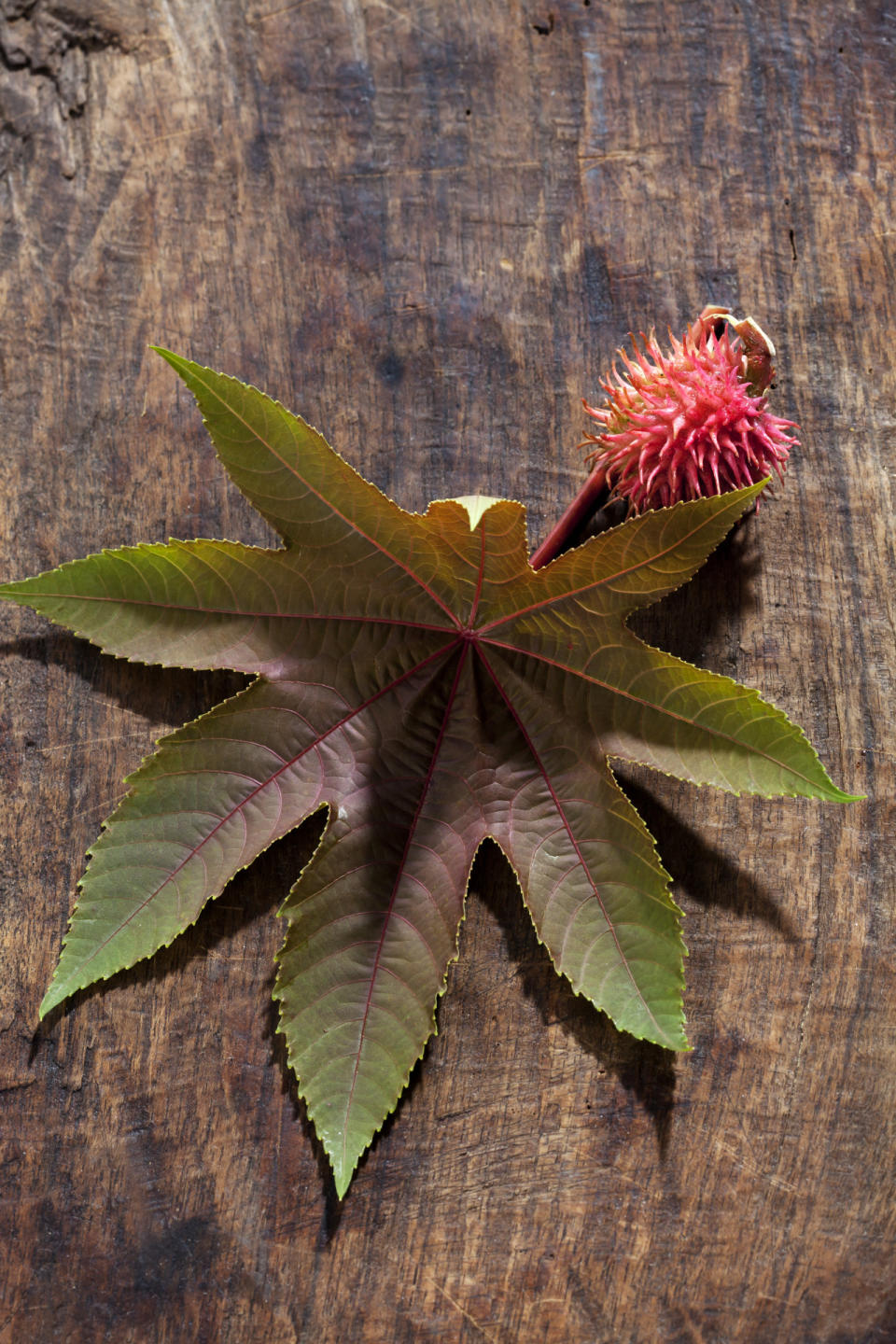
[Photo: Getty]
Castor Oil
Derived from the castor plant, castor oil is warm, lubricating and emolliating. It is perfect for relieving irritating dryness and the itchiness of skin conditions such as psoriasis and eczema. Nutrient-rich with the protein ricin, high in vitamin E and containing essential unsaturated fatty acids, castor oil is considered as a ‘medicinal king’ in Ayurvedic medicine. You can use it as a moisturiser on skin, but it’s also great used in your hair .
Uses: Itchy scalp, makeup remover, stretch marks
Try: Pukka Organic Castor Oil £8.85
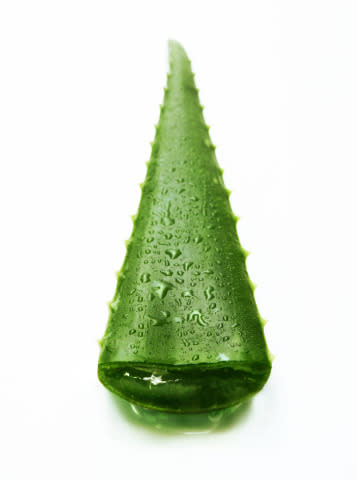
[Photo: Getty]
Aloe Vera
One of the more well known botanicals used in skincare, the soothing properties of aloe vera removes excess heat from the body. Aloe vera has been used for centuries to treat wounds, skin infections and other skin conditions due to it’s antiseptic, soothing and moisturising properties. The gel from this spiky green plant also contain a huge variety of vitamins, minerals and fatty acids – it is one of the few plant source of vitamin B12, an essential vitamin for keeping the nervous system healthy.
Uses: Skin soother, detox, indigestion, acne
Try: Aloe Vera Juice £5

[Photo: Getty]
Matcha
You may have heard of the benefits of green tea, but the benefits of matcha is said to be equivalent to ten cups of green tea. Matcha is actually just stone-ground tea leaves but since traditional water extraction from tea leaves only gives you a fraction of the nutrients, drinking the whole leaf provides you with the full intake of vitamins, minerals and antioxidants. It also contains catechins, a potent class of antioxidants not found in many other foods. Almost calorie free, matcha helps to boost metabolism and burn fat without raising blood pressure or heart rate.
Uses: Detox, boost energy levels, weight loss
Try: Clearspring Matcha Tea £15.99

[Photo: Getty]
Rose
Reportedly used in Cleopatra’s beauty routine, rose essence is rich in flavanoids, tannins and antioxidants - all perfect for hydrating and nourishing the skin. Steam-distilled from the flower of the plant, it can take up to 60 roses to create just one drop of Rose essential oil. It has natural antibacterial and astringent properties, which makes it a common base for facial toners and mists.
Uses: Hydration, acne, sore throats, bath soaks
Try: Ruby Red Rose Otto Face Oil £40
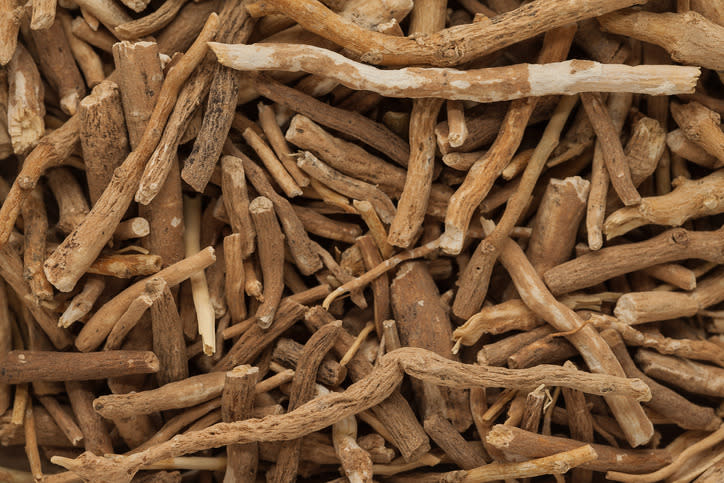
[Photo: Getty]
Ashwagandha
Although relatively unheard of, this is a great herb for living in the 21st Century as it supports inner vitality and calm. Also known as winter cherry or Indian ginseng, Ashwagandha gently rebuilds immunity, strength and slows ageing, allowing us to adapt to the stresses of everyday living. The shoots, seeds and fruit may be eaten, and the roots may be used for making a tea. However it’s also easily ingested as capsules or in a powder form.
Uses: Stress, promote better sleep, anxiety
Try: Neal’s Yard Ashwagandha Tincture £6.30
Finally - just because a product says herbal on the label, it doesn’t guarantee that it’s good for you. Always read the label and if you’re pregnant, suffering from a chronic illness or taking certain medications, check with a professional before taking new supplements.
What do you think of herbal medicine and supplements? Would you consider taking the over modern remedies? Tweet us your thoughts @YahooStyleUK.


